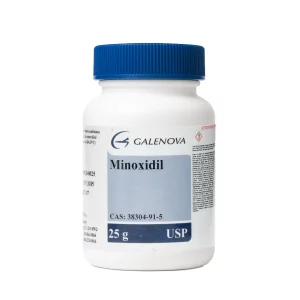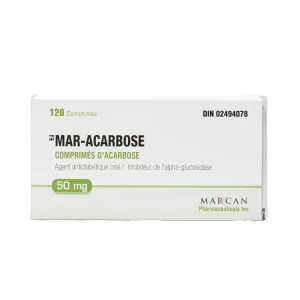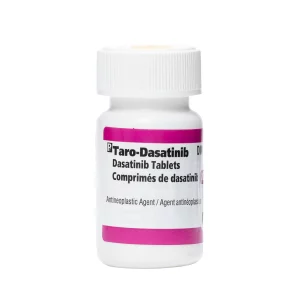Your cart is empty.
Your cart is empty.
Rapamune is the brand name for sirolimus. It was first approved to help organ transplant patients by controlling their immune response. Now, interest in Rapamune has expanded, especially among people who want to support their immune system as they get older.
In this article, we’ll explore how Rapamune improves immune function, what the science says, and whether it might help you maintain your health as you age. We’ll also cover how it connects to other wellness topics, like Rapamune and senescent cells, and immune balance.
Rapamune is a prescription medication that works by blocking something called the mTOR pathway. The mTOR pathway controls how cells grow, divide, and respond to nutrients. In transplant patients, Rapamune slows this pathway to help calm the immune system and prevent rejection.
Doctors have used Rapamune for years. It’s considered safe under supervision and is monitored through blood tests to ensure proper use. More recently, researchers have started to explore how this drug might help manage immune activity in other ways, especially related to healthy aging.

As we get older, our immune system doesn’t work as well. This natural process is called immunosenescence.
Older adults are more prone to infections. Their immune cells don’t respond as quickly. Vaccines may not work as well, and inflammation in the body tends to increase. Scientists are now looking at ways to slow this immune aging. They believe that targeting certain pathways, like mTOR, could help the immune system act younger, even as we age.
That’s where Rapamune for immune function enters the picture.
Rapamune targets the mTOR pathway and slows it down. But instead of shutting down the immune system completely, it helps regulate it.
This balance is important. Too much immune activity can lead to chronic inflammation. Too little can increase the risk of infection. Rapamune helps shift the immune system into a more youthful, balanced state.
In one key study, older adults who took low doses of Rapamune responded better to flu vaccines. Their bodies produced more protective antibodies, just like a younger immune system would. This shows that the drug may not just block immune function, it may actually help improve how it works when used at low doses.

Animal studies first showed how Rapamune could improve immune health. Mice given Rapamune lived longer and had stronger immune responses.
In human studies, researchers tested Rapamune in older adults. They found that people who took small weekly doses had better responses to vaccines.
These people didn’t get sick more often. In fact, they had fewer infections over the months that followed. This suggests Rapamune may support better immune memory and reduce age-related decline. It’s important to know that these benefits seem strongest at low doses and in people with aging or sluggish immune systems. The goal isn’t to “boost” immunity, but to rebalance it.
Researchers are now studying Rapamune for broader uses.
Before considering taking any medication, reach out to a licensed professional. Discuss your options openly and make sure this is the right choice. Everything presented here is purely for informative purposes. Some people take it to maintain immune balance as they age. Others are exploring its role in managing long-term inflammation, which is linked to aging and many chronic conditions.
There’s also early interest in Rapamune for helping the body fight viral infections or improving how it responds to stress over time. Its role in regulating metabolism and immune signals may even link to emerging studies on Rapamune for metabolic health, though more research is needed.
While current research looks promising, you shouldn’t self-medicate. If you’re thinking about using Rapamune for wellness or longevity, talk to a licensed clinician first.
While the research is exciting, Rapamune is still only approved for transplant use. Using it for immune support is considered “off-label” and should always involve medical supervision.
Doctors can help:
Results take time. Some people notice better energy or fewer infections within weeks. But deeper changes, like improved immune regulation, happen gradually.
Rapamune isn’t meant to over-activate the immune system. Instead, it helps create balance.
Rapamune is gaining attention not just for its original use in transplant care, but also for its potential role in healthy aging. Gently regulating the immune system through mTOR inhibition it may help support stronger immune responses in older adults.
While early studies are promising, it’s essential to approach this option with care, guidance, and proper monitoring. For those looking to stay well as they age, Rapamune offers an exciting area of research, one that bridges science and longevity. Always consult a medical professional before starting any new protocol aimed at immune health or long-term wellness.
It slows the mTOR pathway, which helps immune cells function more like they do in younger bodies. This may support stronger responses and better balance.
Low-dose use has shown positive results in early studies. But it must always be used with a doctor’s help and regular monitoring.
Yes. In some clinical trials, older adults taking Rapamune produced more antibodies after flu shots.
Some changes may be noticeable in a few weeks. But full immune modulation happens slowly over months and varies from person to person.
Some longevity-focused individuals do, under medical supervision. It’s used not to boost, but to regulate immune activity in a balanced way.
Scientists continue studying how Rapamune affects immune cells, especially over time. They are exploring how it helps the body remember infections, how it reduces chronic inflammation, and how it might prevent age-related diseases linked to immune decline.
Researchers are also working together to run larger, longer studies. These studies will help confirm the best doses, who benefits most, and what long-term use looks like.
The early signs are promising. And as research grows, we’ll know more about how to use Rapamune to support wellness and aging. If you’re interested, ask your doctor how to get Rapamune through a prescription and supervised care.
Mannick, J. B., Del Giudice, G., Lattanzi, M., Valiante, N. M., Praestgaard, J., Huang, B., … & Klickstein, L. B. (2014). mTOR inhibition improves immune function in the elderly. Science Translational Medicine, 6(268), 268ra179.
https://pubmed.ncbi.nlm.nih.gov/25540326
Mannick, J. B., Morris, M., Hockey, H. U. P., Roma, G., Beibel, M., Kulmatycki, K., … & Kessler, O. (2018). TORC1 inhibition enhances immune function and reduces infections in the elderly. Science Translational Medicine, 10(449), eaaq1564.
https://pubmed.ncbi.nlm.nih.gov/29997249
Powell, J. D., Pollizzi, K. N., Heikamp, E. B., & Horton, M. R. (2012). Regulation of immune responses by mTOR. Annual Review of Immunology, 30, 39–68.
https://pubmed.ncbi.nlm.nih.gov/22136167


Minoxidil 25mg - Oral vasodilator for blood pressure management. Cardiovascular foundation support, pharmaceutical-grade standards, expert monitoring required.

Acarbose 50mg 120 Tablets - Gentle introduction to glucose control. Three-times daily with meals, precision-formulated tablet strength.

Dasatinib 20mg 60 Tablets - Flexible pediatric-strength dosing option. USP standards compliance, anytime administration, gradual increase capability.
Unlock savings on bundles and elevate your online experience today!